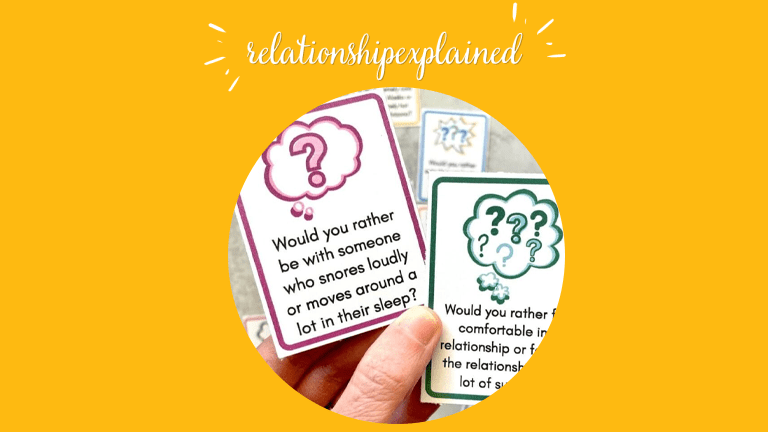Therapist Recommended Couples Communication Exercises
Is the key to a happier relationship hidden in the art of communication? Many couples find themselves tangled in misunderstandings and disagreements, not realizing that the root of many issues lies in how they communicate. Therapists across the board stress the importance of communication exercises tailored for couples, designed to bridge gaps, foster empathy, and […]
Is the key to a happier relationship hidden in the art of communication?
Many couples find themselves tangled in misunderstandings and disagreements, not realizing that the root of many issues lies in how they communicate. Therapists across the board stress the importance of communication exercises tailored for couples, designed to bridge gaps, foster empathy, and cultivate a deeper understanding between partners.
Whether it's learning to actively listen, expressing gratitude, or navigating conflicts with grace, these exercises are more than just tasks; they're stepping stones to a more connected and fulfilling partnership.
- What does it take to transform your communication landscape?
- How can simple exercises unlock levels of intimacy you've never experienced before?
- How do these practices pave the way for a relationship that's not just surviving, but thriving?
Let's dive in!
Key Takeaways
- Couples communication exercises can help partners improve their communication skills and develop emotional intelligence and empathy.
- By practicing these exercises regularly, couples can learn to express themselves more clearly, listen more effectively, and work together to overcome challenges.
- Therapists often recommend communication exercises to couples who are experiencing difficulties in their relationship.
Understanding the Role of Communication in Relationships
Communication is a vital component of any relationship, especially in a romantic partnership. It is the foundation that enables couples to share their thoughts, feelings, and emotions with each other. Without healthy communication, a relationship can quickly deteriorate, leading to misunderstandings, resentment, and even breakups.
The Importance of Healthy Communication
Healthy communication is essential to building and maintaining a strong relationship. It is the key to understanding your partner's needs, desires, and expectations. When you communicate effectively, you create a safe space where your partner can share their feelings and thoughts without fear of judgment or rejection.
Effective communication requires empathy, active listening, and the ability to express yourself clearly. It involves not only speaking but also listening and understanding your partner's perspective. When both partners communicate effectively, they can resolve conflicts, build trust, and deepen their emotional connection.
Common Communication Challenges in Couples
Despite the importance of healthy communication, many couples struggle with it. Communication challenges can arise due to various factors, such as differences in communication styles, emotional baggage, and past traumas. Common communication challenges include:
- Misunderstandings: Misunderstandings can occur when one partner misinterprets the other's words or actions. This can lead to arguments and hurt feelings.
- Lack of empathy: Empathy is the ability to understand and share your partner's feelings. When you lack empathy, you may dismiss your partner's emotions or fail to validate their experiences.
- Emotional barriers: Emotional barriers can prevent partners from communicating effectively. These barriers can include fear of vulnerability, shame, and guilt.
- Poor listening skills: Listening is an essential component of effective communication. When you fail to listen actively, you may miss important information or fail to understand your partner's perspective.
In conclusion, healthy communication is crucial to building and maintaining a strong relationship. By understanding the importance of healthy communication and common communication challenges, you can work towards improving your communication skills and deepening your emotional connection with your partner.
Core Communication Exercises for Couples
If you're looking to improve your communication skills with your partner, there are several exercises that therapists recommend. These exercises can help you learn to listen actively, express appreciation and gratitude, and resolve conflicts using the Gottman Method.
Active and Reflective Listening Techniques
One of the most important skills in communication is active listening. This means fully focusing on what your partner is saying and not interrupting them. Reflective listening is another technique that can help you understand your partner's perspective. This involves paraphrasing what your partner has said to show that you're actively listening.
To practice active and reflective listening, try the following exercise:
- Choose a topic that you and your partner disagree on.
- Take turns talking for 5 minutes each without interruption.
- After each person speaks, the other person should summarize what was said.
- Repeat until each person feels heard and understood.
Expressing Appreciation and Gratitude
Expressing appreciation and gratitude can help build a stronger connection with your partner. It's important to acknowledge the things that your partner does for you and express gratitude for them.
To practice expressing appreciation and gratitude, try the following exercise:
- Each day, take turns telling each other one thing you appreciate about each other.
- Be specific and genuine in your compliments.
- Repeat this exercise daily for a week.
The Gottman Method and Conflict Resolution
The Gottman Method is a research-based approach to couples therapy that focuses on building a strong friendship, managing conflicts, and creating shared meaning. The method uses specific exercises to help couples improve their communication skills and resolve conflicts.
To practice the Gottman Method, try the following exercise:
- Choose a specific conflict that you and your partner have been struggling with.
- Take turns expressing your perspective on the issue without interrupting each other.
- Use "I" statements and avoid blaming or criticizing.
- Take a break if you need to cool down.
- Once you've both had a chance to express your perspective, work together to find a compromise or solution that works for both of you.
By practicing these core communication exercises, you can improve your relationship and build a stronger connection with your partner.
Developing Emotional Intelligence and Empathy
Effective communication requires the development of emotional intelligence and empathy. These skills are crucial for building and maintaining healthy relationships. Here are some exercises that can help you and your partner develop emotional intelligence and empathy.
Mindfulness and Emotion Regulation
Mindfulness is the practice of being present and aware of the moment without judgment. It can help you and your partner regulate your emotions and reduce stress and anxiety. Start by setting aside some time each day to focus on your breathing and bodily sensations. When you notice your mind wandering, gently bring it back to your breath. As you become more comfortable with mindfulness, try to apply it to your daily life. For example, when you feel angry or frustrated, take a few deep breaths and try to observe your emotions without judgment.
Understanding and Expressing Emotions
To build empathy, it is important to understand and express your own emotions. Start by identifying your emotions and the physical sensations that accompany them. When you are able to recognize your own emotions, it becomes easier to understand and empathize with others. Practice expressing your emotions in a clear and respectful manner. Use "I" statements to describe how you feel and avoid blaming or criticizing your partner. For example, instead of saying "You always make me angry," try saying "I feel frustrated when we argue."
By practicing mindfulness and emotion regulation and developing your emotional intelligence, you and your partner can build a stronger, more empathetic relationship. These exercises can help you communicate more effectively, resolve conflicts, and support each other through grief, substance use, depression, and other challenges.
Strategies for Enhancing Intimacy and Trust
As a couple, it is important to maintain intimacy and trust in your relationship. This can be achieved through various strategies and exercises recommended by therapists. In this section, we will discuss some of the most effective strategies for enhancing intimacy and trust in your relationship.
Building Trust Through Exercises
Trust is the foundation of any successful relationship. Without trust, it is difficult to build intimacy and maintain a healthy relationship. Therapists recommend various trust-building exercises that couples can practice together. These exercises help couples to communicate better, understand each other's needs, and build a stronger bond.
One such exercise is the "trust fall." This exercise involves one partner standing behind the other and catching them as they fall backward. This exercise helps to build trust and improve communication between partners. Another exercise is the "truth circle," where couples take turns sharing their thoughts and feelings with each other in a safe and non-judgmental environment.
Maintaining Physical and Emotional Intimacy
Physical and emotional intimacy are crucial aspects of any romantic relationship. Couples can maintain intimacy by spending quality time together, exploring each other's love languages, and engaging in physical touch.
Quality time can be as simple as having a meal together or going for a walk. It is important to set aside time for each other and make the most of that time. Exploring each other's love languages can also help to maintain intimacy. Love languages are the ways in which people express and receive love. By understanding each other's love languages, couples can show love and affection in ways that are meaningful to their partner.
Physical touch is also an important aspect of maintaining intimacy. This can include holding hands, hugging, and kissing. Couples should make an effort to engage in physical touch regularly, even if it is just a small gesture.
In conclusion, therapists recommend various strategies and exercises for enhancing intimacy and trust in a romantic relationship. Building trust through exercises such as the "trust fall" and "truth circle" can help to improve communication and build a stronger bond. Maintaining physical and emotional intimacy through quality time, exploring love languages, and physical touch can help to maintain a healthy and happy relationship.
Resources and Professional Guidance
When it comes to improving communication in your relationship, there are several resources and professional guidance available to you. In this section, we will discuss some options that you may find helpful.
Couples Therapy and Counseling Options
Couples therapy or marriage counseling can be a great option for couples who are struggling to communicate effectively. A licensed mental health professional can help you identify the underlying issues in your relationship and provide you with the tools and strategies you need to improve communication. Emotionally Focused Therapy (EFT) is a popular approach that focuses on the emotional bond between partners and aims to create a secure and lasting connection.
If you're not sure where to start, you can search for couples therapists or counselors in your area using online directories. Psychology Today and GoodTherapy are two popular directories that allow you to filter your search by location, specialties, and insurance.
Educational Workshops and Materials
In addition to therapy, there are several educational workshops and materials available that can help improve communication in your relationship. Premarital counseling is a great option for couples who are engaged and want to build a strong foundation for their marriage. Many therapists offer premarital counseling, which can cover topics such as communication, conflict resolution, and shared values.
There are also many resources available online, such as therapy worksheets and books, that can help you improve your communication skills. The Couples Therapy Workbook by Kathleen Mates-Youngman and The Seven Principles for Making Marriage Work by John Gottman are two popular resources that provide practical exercises and strategies for improving communication in your relationship.
Overall, there are many resources available to help you improve communication in your relationship. Whether you choose to seek professional guidance or use educational materials, it's important to remember that improving communication takes time and effort. With the right tools and strategies, however, you can build a strong and healthy relationship.
Frequently Asked Questions
What exercises can help improve communication in a relationship?
Effective communication is the cornerstone of a healthy relationship. Couples who struggle to communicate effectively can benefit from various exercises to improve their communication skills. Some of the exercises that can help improve communication in a relationship include active listening, the "I statement" exercise, and the "mirroring" exercise.
Active listening involves paying attention to your partner when they are speaking and rephrasing what they said to ensure you understand their message. The "I statement" exercise involves expressing your feelings and needs using "I" statements rather than "you" statements. The "mirroring" exercise involves repeating what your partner said to show that you heard and understood their message.
Which books are recommended for enhancing communication between partners?
There are several books that are recommended for enhancing communication between partners. Some of the most popular books include "The Five Love Languages" by Gary Chapman, "Hold Me Tight" by Dr. Sue Johnson, and "Nonviolent Communication" by Marshall B. Rosenberg. These books provide practical tips and exercises that can help couples improve their communication skills and build stronger relationships.
Can you suggest effective premarital counseling exercises for better communication?
Premarital counseling can help couples prepare for a successful marriage by addressing important issues such as communication, conflict resolution, and shared values. Some effective premarital counseling exercises for better communication include the "Love Maps" exercise, the "Appreciation" exercise, and the "Dreams Within Conflict" exercise.
The "Love Maps" exercise involves learning more about your partner's interests, hopes, and dreams. The "Appreciation" exercise involves expressing gratitude for your partner's positive qualities and actions. The "Dreams Within Conflict" exercise involves exploring the underlying hopes and fears that drive conflicts in a relationship.
Where can I find downloadable couples therapy exercises to practice at home?
There are several online resources that offer downloadable couples therapy exercises that can be practiced at home. Some of the most popular websites include The Gottman Institute, Psychology Today, and Therapist Aid. These websites offer a variety of exercises and worksheets that can help couples improve their communication skills and strengthen their relationship.
What are some engaging activities that can strengthen a couple's connection?
Engaging activities can help strengthen a couple's connection by promoting closeness, intimacy, and trust. Some engaging activities that can strengthen a couple's connection include taking a dance class together, going on a weekend getaway, or trying a new hobby together.
These activities provide opportunities for couples to bond and create shared experiences that can deepen their connection.
How does the "I statement" exercise benefit couple's communication?
The "I statement" exercise is a powerful tool that can help improve communication in a relationship. This exercise involves expressing your feelings and needs using "I" statements rather than "you" statements.
Using "I" statements can help you take ownership of your feelings and communicate them in a way that is less likely to be perceived as blaming or accusatory. This can lead to more productive conversations and a deeper understanding of each other's needs and perspectives.












